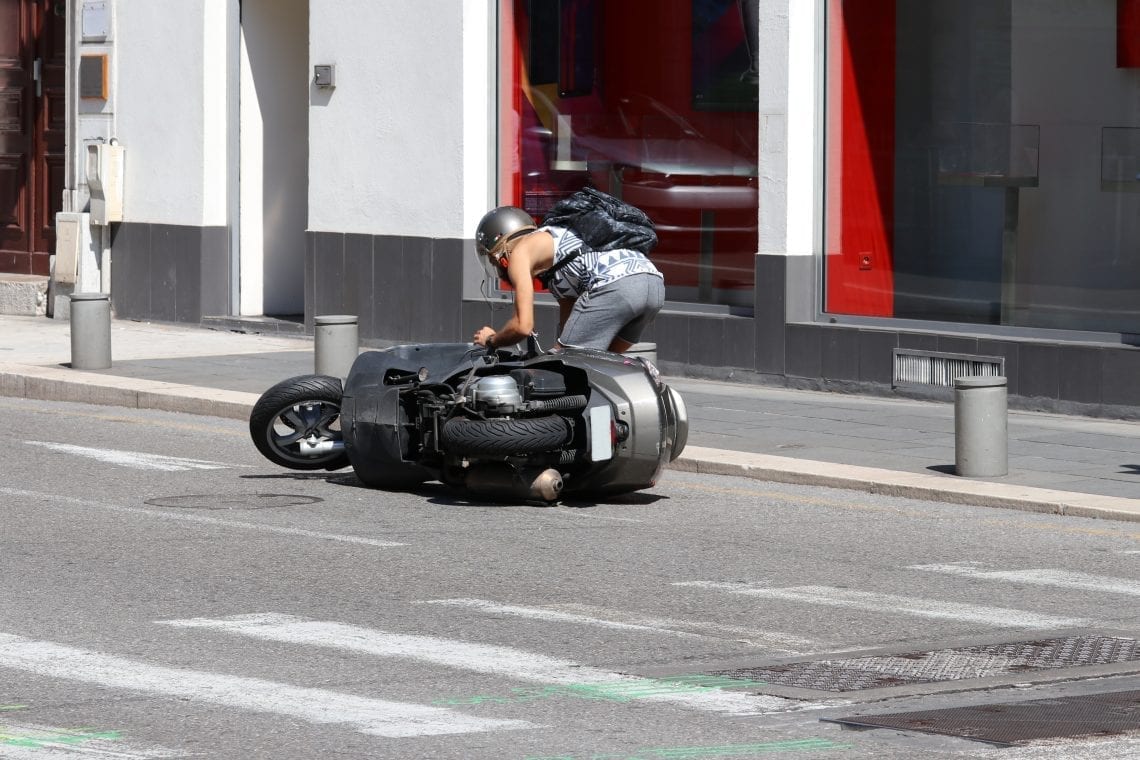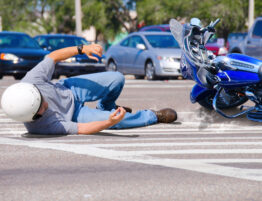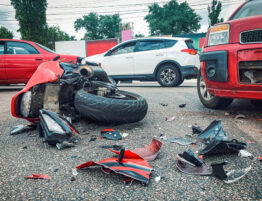
To some, the dangers of riding a motorcycle may make it hard to believe that a helmet provides much benefit during an accident. However, studies have shown that the type of impact plays a significant role in the effectiveness of a helmet in preventing traumatic brain injury or death. So how has Florida’s motorcycle helmet law affected crash statistics on its highways since relaxing requirements to wear helmets in 2000?
Understanding Florida’s Motorcycle Helmet Law
While Florida’s helmet law has generated a lot of debate and eventually rolled back some of the requirements, by law, one still must wear a helmet except in certain conditions.
Florida’s Motor Vehicle Statute § 316.211 initially states that one cannot ride or drive a motorcycle unless they have on a securely fastened helmet, but there are exceptions to this requirement. In 2000, Florida allowed an exception to this critical safety law that permits individuals over the age of 21 to forgo headgear while riding their motorbike so long as they carry at least $10,000 in medical coverage. The reasoning is that this insurance would cover at least some of the injuries sustained in an accident while cruising around town.
How has this change from twenty years ago affected Florida’s motorcycle fatality rates? The answers might surprise you.
Risks of Not Wearing a Motorcycle Helmet
It is common to assume that anyone in a motorcycle crash without a helmet may not survive from their injuries. Surprisingly, this rationale doesn’t match the data. Certain types of accidents are fatal regardless of protective headgear because of impact speeds and trauma to the body.
The Florida Highway Patrol reported that out of 450 motorcycle fatalities in 2014, 210 of the riders and passengers killed were not wearing a helmet. Statistics showed similar rates in 2013, and despite these numbers being higher than other states, some have pointed out that Florida’s weather allows for year-round riding conditions.
But what does this data prove when it comes to wearing protective headgear while operating a motorcycle? It is better to be safe than sorry, according to several studies conducted since the enactment of the new motorcycle law twenty years ago. Failing to wear a helmet while operating or riding as a passenger on a motorcycle increases one’s risk of severe injuries, even if one survives the initial impact.
These injuries could include:
- Traumatic brain injury;
- Paralysis;
- Broken vertebrae;
- Spinal cord injury;
- Ruptured discs; or
- Whiplash.
The shock absorption provided by a high-impact motorcycle helmet can only do so much to protect the skull. When the generated force exceeds the limits of the helmet, there might not be enough protection. There are limits to the engineering of these safety devices, but safety proponents argue that not doing so is an almost-guarantee of severe injury or death during an accident. The premise is that it is always safer to have a barrier protecting your head from contact with any object than not.
The Debate Behind the Florida Motorcycle Helmet Law
Florida legislators changed the motorcycle helmet law after state courts struck down the previous law as unconstitutional, in part because the standard for the safety gear was vague. The current version seeks to find a compromise by allowing adults the freedom to decide for themselves. By requiring they carry additional medical insurance, the government helps the public avoid shouldering the cost if an accident should occur, and the rider or passengers cannot afford care for their injuries.
Today, there are still challenges working through the Florida court system. Those against the helmet law argue that the current law is exercising too much control over their rights as citizens. The government justifies the added requirements of additional medical benefits and age restrictions because of the dangers riders face on roadways. Debris frequently poses a risk to motorcycle operators. Objects striking a motorcyclist in the head, face, or eyes may cause them to lose control and endanger not only themself and their passenger but any other vehicles around them.
Trust an Experienced St. Petersburg Motorcycle Accident Attorney for Your Injury Case
Despite the difference of opinions between motorcycle riders and medical experts regarding the effectiveness of wearing a helmet, the traumatic effects of accident injuries are undeniable. Minimizing exposure to injury while out for an evening cruise in St. Petersburg is vital to the to everyone on the road.
Rely on Attorney Frank P. Marsalisi if you or a loved one has suffered a catastrophic motorcycle accident. Our law firm has helped thousands of motorcycle enthusiasts recover compensation after suffering injuries and damages due to others’ negligent actions. Frank P. Marsalisi has a proven track record of successfully litigating claims involving motorcycle collisions for more than a decade.
As a proud member of the Tampa Bay Trial Lawyers Association, Mr. Marsalisi has demonstrated an unwavering dedication to his clients and their well-being after a traumatic injury. Our firm is fluent in English and Spanish, allowing you to communicate your questions and get the answers you need. Contact our office online today or call (727) 800-5052 for a free case evaluation to learn what your rights are and how to proceed with your case.
Marsalisi Law is Where Law Gets Personal!








